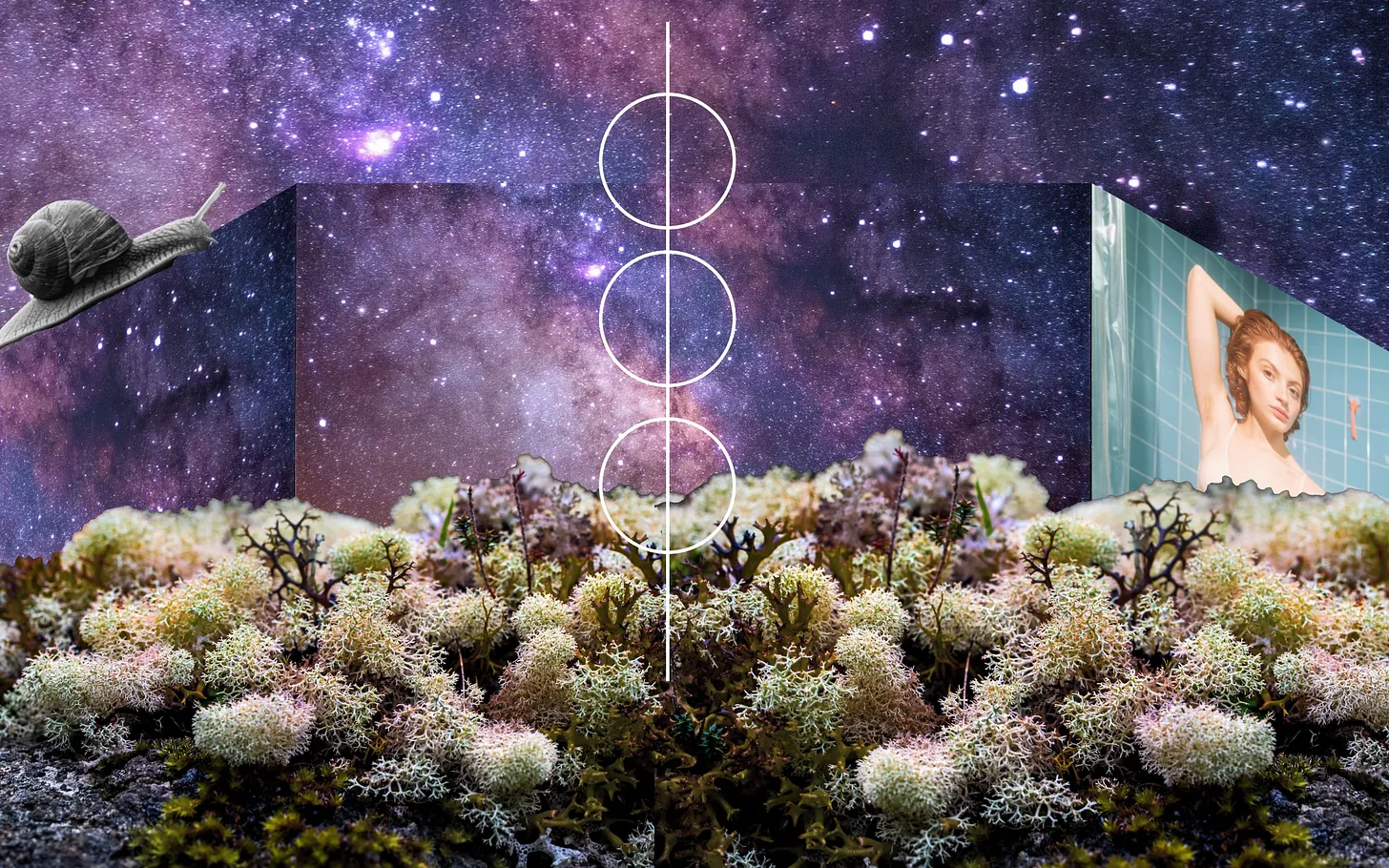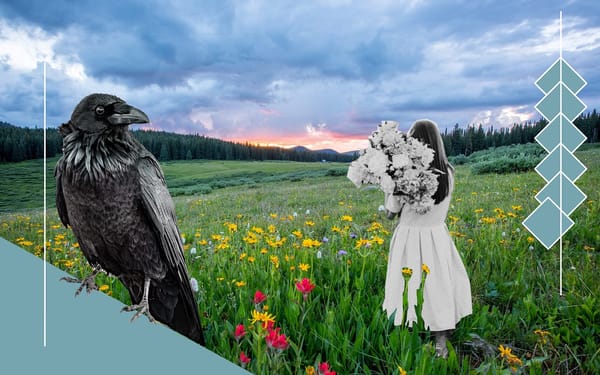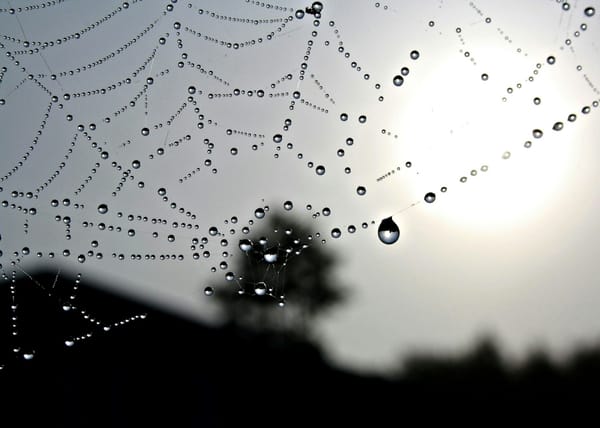What if the ideas shaping your life aren’t yours at all — but borrowed scripts, quietly shrinking your world without you noticing?
I’ve long championed the mantra: choose your philosophy, then live by it. But lately, I’ve been sitting with an unsettling question: can we really choose a philosophy, or does it, in some sense, choose us?
We cannot not have a philosophy. Every breath, decision, and conversation is laced with assumptions about what matters, what’s real, and who gets to decide. But the problem begins when we treat philosophy like a possession — something we have, like a trophy on the shelf or a tool in the box.
When we do that, philosophy becomes rigid — a set of answers rather than a living inquiry. And a rigid philosophy, however noble, soon becomes a cage.
Here’s the tension I want to tease out: while philosophy isn’t something we can own, it’s also not something that merely happens to us. It’s a relationship we’re already in — whether we tend it or neglect it.
As Alfred North Whitehead puts it:
“In one sense philosophy does nothing. It merely satisfies the entirely impractical craving to probe and adjust ideas which have been found adequate each in its special sphere of use. In the same way the ocean tides do nothing. Twice daily they beat upon the cliffs of continents and then retire. But have patience and look deeper; and you find that in the end whole continents of thought have been submerged by philosophic tides, and have been rebuilt in the depths awaiting emergence. The fate of humanity depends upon the ultimate continental faith by which it shapes its action, and this faith is in the end shaped by philosophy.”
– Alfred North Whitehead
We are a long way already from thinking of philosophy as abstract ideas that live in textbooks.
You could think of philosophy instead like a garden. You didn’t invent the soil, the seeds, or the weather. But the way you water, prune, and pay attention shapes what flourishes and what withers. Left alone, weeds will take over. Tended with care, a garden becomes an ecosystem — full of surprises, self-regenerating, and larger than you.
So the question shifts from What’s my philosophy? to How am I tending the philosophy that’s growing through me?
Our philosophies are the blueprints for our world-making
Most of us wear philosophies like invisible glasses—or perhaps more like an untended garden sprawling at the edges of our attention.
We assume reality is neutral and fixed, rather than something co-created with every breath, choice, and conversation. But when we mistake the scaffolding of philosophy for universal truth, we risk becoming puppets of our own unchosen paradigms.
When we mistake the scaffolding of philosophy for universal truth, we risk becoming puppets of our own unchosen paradigms.
One of the most deeply-rooted philosophies in our Western, educated, industrialized, rich, and democratic (WEIRD) world is mechanisation: treating Earth as resource, time as commodity, and growth as an endless upward line. This logic shows up everywhere—in extractive capitalism, in burnout culture, in the myth of infinite progress.
In contrast, many Indigenous cosmologies root themselves in circular time and reciprocal kinship with land. Where WEIRD worldviews fixate on parts and control, others focus on relationships and tending.
We are always world-ing — breathing life into certain stories, starving others. Colonialism, patriarchy, and climate collapse aren’t merely historical events; they are the fruits of worldviews that severed humans from nature, women from power, and progress from responsibility. Reimagining philosophy, then, isn’t just intellectual play. It’s an act of survival.
A philosophy isn’t a mirror reflecting reality. It’s more like a mycelial network — quietly weaving reality into being beneath the surface. The question isn’t whether you have a philosophy, but whether you are tending it, or letting it tangle around you without care.
All of which leads us here:
The Problem with Having a Philosophy

I used to collect philosophies. I’d pocket them like shiny stones, polish them, and line them up on a mental shelf. Look at me, I’d think — so nuanced, so wise. But the truth was, I was mistaking curation for connection. As Sadhguru says:
“The moment you get identified with your limited ideas of morality you become completely twisted. Your intellect functions around these identifications in such a way that you never see the world as it is. If you want an element of spirituality to enter your life, the first thing you must do is drop these rigid ideas of virtue and vice, and learn to look at life just the way it is.”
To have a philosophy is to treat it like a possession — something to control, display, or rely on for certainty. But possession is extractive. It flattens philosophy into static answers, turning something wild and relational into a commodity, a cage.
We’ve been taught to think of philosophies as finished products: Nietzsche’s will-to-power, Descartes’ cogito, Kant’s categorical imperative. As if they’re museum exhibits to admire rather than living ecosystems to inhabit.
We’ve been taught to think of philosophies as museum exhibits to admire rather than living ecosystems to inhabit.
But philosophy isn’t a noun. It’s a verb. A process. A living presence.
The desire to own and control philosophy — to wrap it up in neat answers and feel certain — is itself a product of the very worldview many of us inherited. The WEIRD world teaches us to value mastery, predictability, control. We measure success by our ability to systematise and dominate complexity. But reality, and philosophy along with it, resists being pinned down. It’s messy, dynamic, full of contradictions.
Philosophies are more like mycelial networks — alive, evolving, and inseparable from the soil they grow in. They’re not puppets we control, but presences we collaborate with. They shift and stretch when we meet new people, read strange books, or walk alone in a forest and feel our separateness dissolve.
Even these words I’m writing are not fully mine. They’re co-created with a machine, shaped by millions of human minds, carried forward on cultural currents. They reflect a philosophy that’s not owned, but hosted.
Alfred North Whitehead reminds us:
“The ultimate metaphysical ground is the creative advance into novelty.”
For Whitehead, reality isn’t made of static things but of events—interwoven processes in perpetual becoming. A rock isn’t just a rock; it’s a mingling of minerals, a conversation with erosion, a momentary shape in geologic time. You aren’t just you, you’re a flow of cells, memories, and relationships, reinventing yourself with every breath.
The eco-phenomenologist David Abram urges us to see the world not as a collection of objects but as a community of subjects. In The Spell of the Sensuous, he writes that rocks, rivers, and ravens are not passive resources but active participants in the more-than-human world. To Abram, perception itself is a dialogue: the wind speaks through chimes; the soil remembers in the scent of rain.
If the world around us is animate, ever-changing, why would our philosophies be any different?
A living philosophy isn’t a monologue; it’s a polyphonic conversation. It listens as much as it speaks. It’s accountable to the communities — human and more-than-human — that it touches and shapes.
To tend a philosophy, then, is to host something like lichen: part you, part other, wholly dependent on relationship — never fully controlled, only ever co-created.

To tend a philosophy is to host something like lichen: part you, part other, wholly dependent on relationship — never fully controlled, only ever co-created.
This shifts philosophy from a noun to a gerund: not truth but truthing, not being but becoming.
When we fixate on philosophies as rigid systems, we mirror what Carol Dweck calls a fixed mindset: the belief that intelligence, talent, or identity are unchangeable.
A fixed mindset fears failure, a growth mindset thrives on it. In the same way, a fixed philosophy resists ambiguity, contradiction, and growth. It becomes brittle, defensive.
A living philosophy feeds on tension. It delights in friction, in being stretched beyond what it thought possible. When your beliefs clash — I care about sustainability, but I drive a gas car — that’s not failure. That’s compost. That’s fertile ground.
A living philosophy feeds on tension. When your beliefs clash, that’s not failure. That’s compost. That’s fertile ground.
Your philosophy isn’t something you possess. It’s a relationship you tend. A dynamic, breathing ecosystem.
So, how do we care for a philosophy the way we’d care for a forest, a friendship, a lover? What does it need to thrive? What sustains it when it’s tired? How does it surprise us?
Philosophy as a Living Being
Imagine your philosophy as a creature. What does it eat? How does it move? Does it hibernate? How does it renew? What environments help it thrive?
- Embrace unknowing as a skill. Let go of the need for answers. David Abram suggests that mystery isn’t a problem to solve but a relationship to deepen. Spend time in places that humble you: old-growth forests, uncomfortable conversations, unknown territories.
- Practice reciprocity. Care is cyclical. If your philosophy sustains you, ask: what sustains it? Feed it diverse voices. Compost outdated ideas. Thank the thinkers who nourish you, and the microbes that nourish them.
- Listen deeply. As Rumi says: “Sit, be still, and listen.” Engage with the world and those around you with heightened attention and empathy. True listening is the deepest act of care.
- Rewild your mind. Industrial agriculture monocrops; a living philosophy polycrops. Let your philosophy get messy. Read poetry that makes you uncomfortable. Talk to someone whose beliefs challenge you. Cross-pollinate disciplines.
- Fail forward. Dweck’s mantra is “Not yet.” When your philosophy stumbles (and it will), don’t discard it. Diagnose it. Did it become too rigid? Too detached from the body? Failure is data. Compost it. Grow anew.
Philosophies are not held. They hold. They cradle us in moments of doubt and nudge us toward certain choices. To tend a living philosophy is to acknowledge this reciprocity — to kneel in the soil of our beliefs and ask: What do you need to thrive?
This doesn’t mean surrendering agency. It means recognising that agency is always shared. Just as a gardener collaborates with sunlight, soil, and seasons, we collaborate with the philosophies that root us. Sometimes they surprise us. Sometimes they wound us. Sometimes they dissolve, only to return in new form.
So instead of asking “What’s my philosophy?”, we might ask: “How is my philosophy living through me?
What worlds is it building?
What worlds is it burning?”
In the end, we are not the authors of our philosophies. We are their habitats. And a habitat is never owned. It’s borrowed, tended, and someday returned — transformed by giving and receiving.

Jessica explores the art of practical philosophy, helping others develop their own philosophy to navigate the challenges of the Anthropocene. Her work is a blend of interdisciplinary insights—from ecology and sustainability to spirituality and psychology—crafted into wisdom you can apply to daily life.
For more thought-provoking reflections on living a good life in a complex, changing world, visit Rewilding Philosophy to discover how to live in right relation, embrace paradoxes, and thrive in the gooey soup of meaning-making.











Member discussion